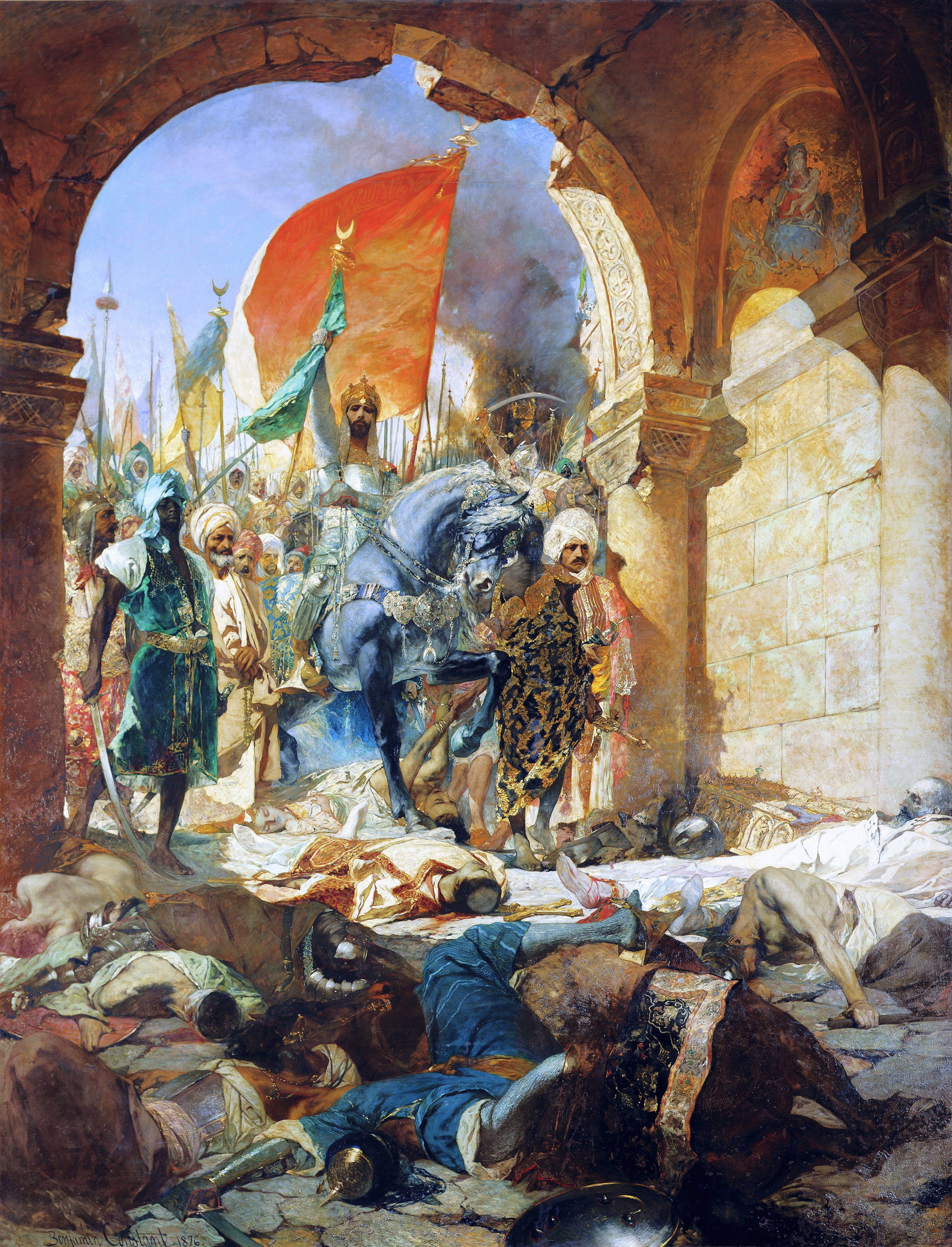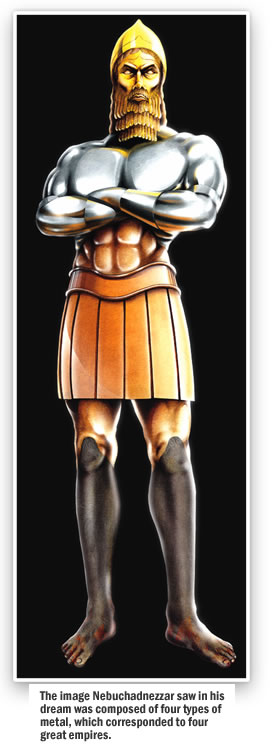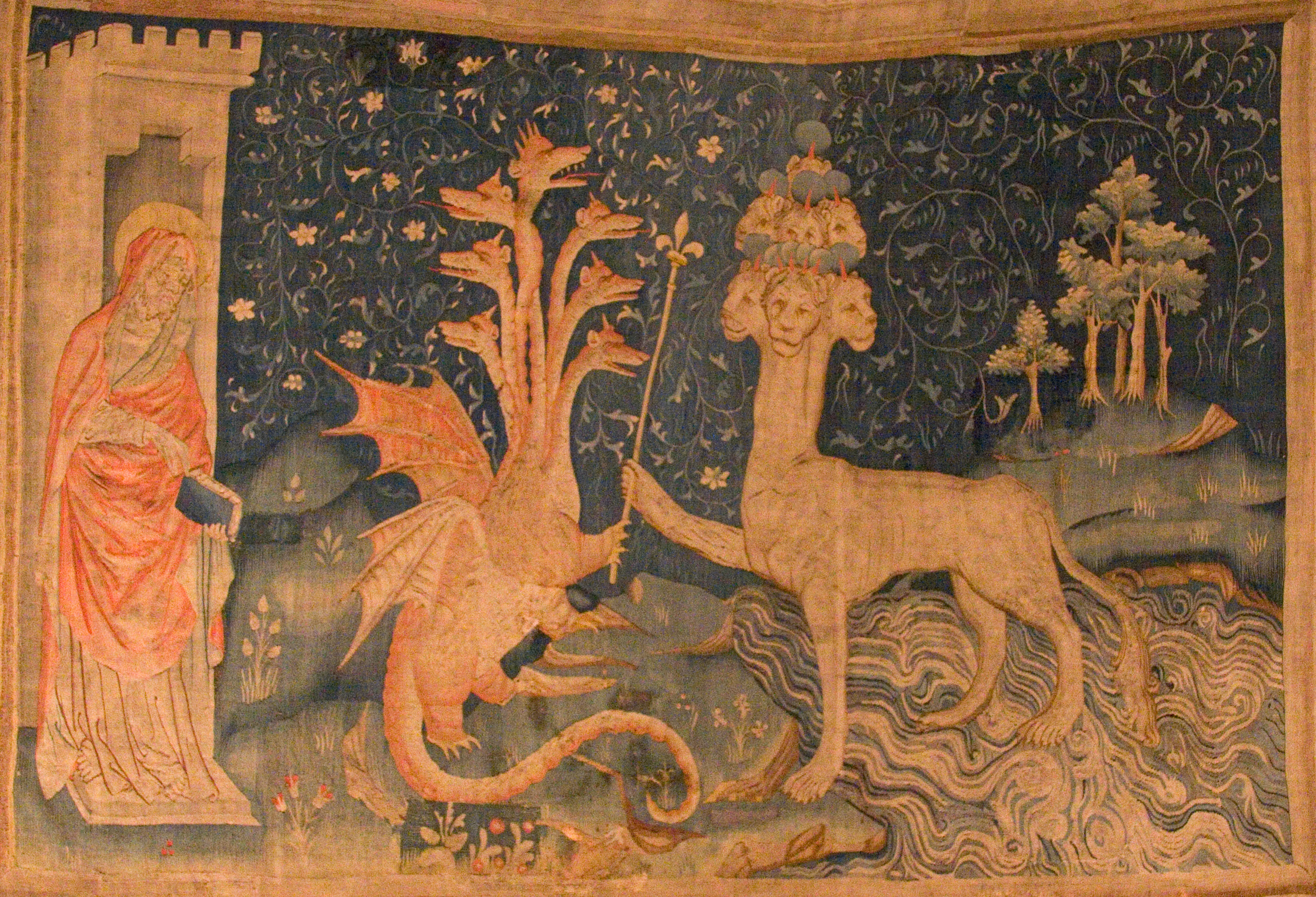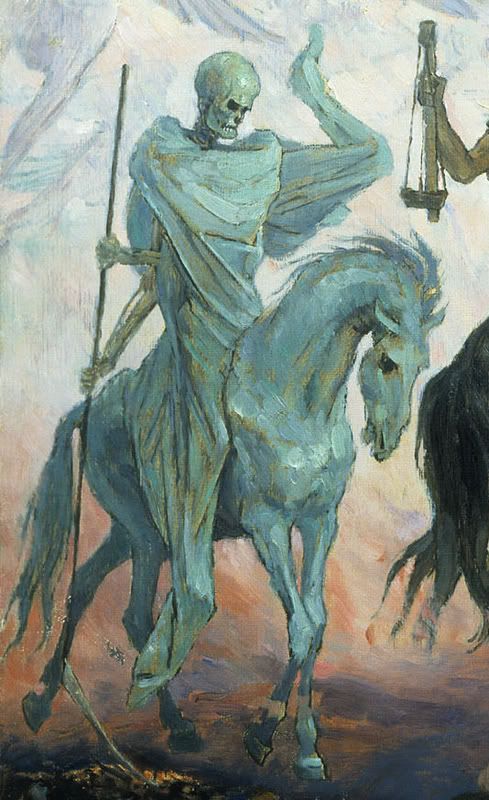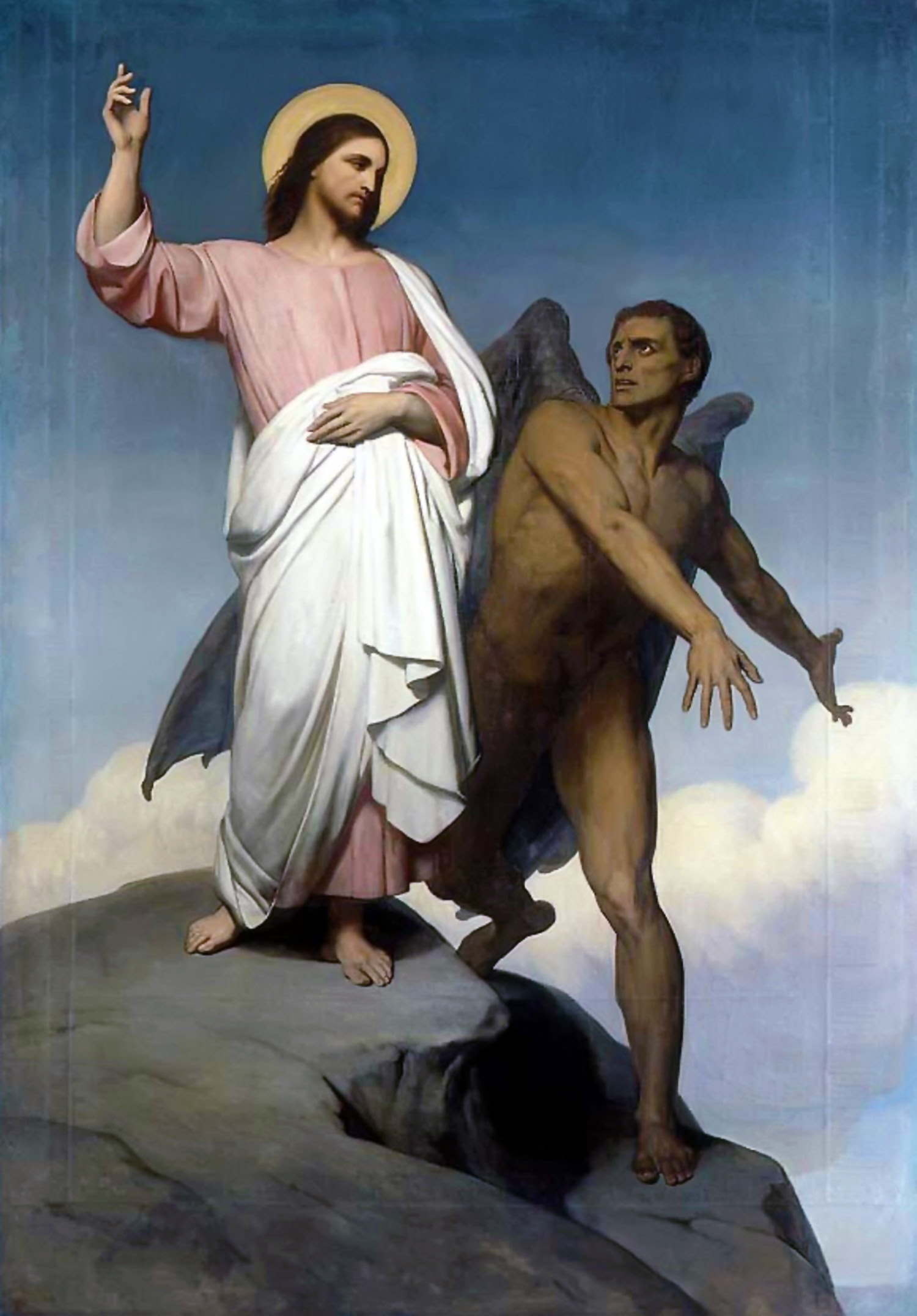
Then Jesus was led by the Spirit into the desert to be tempted by the devil.After fasting forty days and forty nights, he was hungry. The tempter came to him and said, "If you are the Son of God, tell these stones to become bread."Jesus answered, "It is written: 'Man does not live on bread alone, but on every word that comes from the mouth of God.'"Then the devil took him to the holy city and had him stand on the highest point of the temple. "If you are the Son of God," he said, "throw yourself down. For it is written:" 'He will command his angels concerning you,
and they will lift you up in their hands,
so that you will not strike your foot against a stone.'"Jesus answered him, "It is also written: 'Do not put the Lord your God to the test.'"Again, the devil took him to a very high mountain and showed him all the kingdoms of the world and their splendor. "All this I will give you," he said, "if you will bow down and worship me."Jesus said to him, "Away from me, Satan! For it is written: 'Worship the Lord your God, and serve him only.'"Then the devil left him, and angels came and attended him.[Mat 4:1-11]
Now whether this narrative is literal or not have been debated for a long time.
We can however be certain that it happened, spiritually, at the least. For Satan is a spiritual being and conversation between him and Jesus and the things seen must have occurred in the spiritual realms. Perhaps it is not unlike a dream or a hallucination.
But more importantly is the fact that Jesus was tempted:
We can however be certain that it happened, spiritually, at the least. For Satan is a spiritual being and conversation between him and Jesus and the things seen must have occurred in the spiritual realms. Perhaps it is not unlike a dream or a hallucination.
But more importantly is the fact that Jesus was tempted:
For we do not have a high priest who is unable to sympathize with our weaknesses, but we have one who has been tempted in every way, just as we are—yet was without sin.[Heb 4:15]
Jesus was tempted in every way.
And the tempter is Satan.
The questions then are:
And the tempter is Satan.
The questions then are:
Are these three temptations all the every ways of temptations, ie in these temptation are all the temptations that the son of man in the flesh will be tempted? How did the writer of Hebrews knew that Jesus was tempted in every way?On the second question, it is important to note that Jesus' sinlessness in the flesh is important—in fact essential—to fulfill the Law of Moses. For Jesus, the Son of Man, amongst other things, had to demonstrate that the Law can be fulfilled in the flesh, and also to be the unblemished Passover lamb, and the scapegoat of the Yom Kippur, to be a worthy sacrifice to take away all sins.
Apart from these three temptations was Jesus not tempted in other times, times that were never recorded, eg when Jesus was a boy or a young man.
Of course we do not have records of every moment of Jesus' life and thoughts—we do not and cannot know every thing that Jesus saw, thought, said, or acted—to know that he did not sin for any single moment. However it was clear to the Jews themselves that God was with Jesus—for the miracles that he did and for his teachings—and that to the Jews was confirmation enough that a person is sinless and righteous, and that the Law is fulfilled in Jesus.
Further the death of Jesus on the cross, and prior to that, God forsaking Jesus, was a sign that Jesus actually died in sin—if Jesus had remained sinless, he would have hung undying on the cross, a most horrible and grotesque thing that will be.
But thank God, Jesus died.
And as he was without sin before being hung on the cross, we can be assured then that he had sin put on him. We may not know if it was the sin of the world for all peoples for all times, but it sufficed us to know that Jesus died a sinner.
And thus the Gentiles have hope too.
For the Gentiles now know that a man died and was resurrected. And so all who will die, can now believe in the God of Jesus to save them, even as Jesus demonstrated that the dead shall come to life again.
Now were the temptations tempting Jesus all and every temptations that Man can be tempted with?
First a temptation is a temptation only if one can be tempted by it. A cigarette will not be a temptation to one who does not smoke, but possibly an irresistible one to one trying to quit smoking.
We can feel and understand how Jesus being in the flesh can be tempted by food after forty days and nights of fasting. And we can also understand that Jesus was certainly tempted in all things in the flesh, all things carnal, just as we are, ie not just food, but shelter, rest, companionship, sex, etc etc. If we read the above passage allegorically, then this first temptation is a representation of one kind of temptation that befalls Man, namely that due to being in the flesh.
The real temptation here is to forgo feeding the spirit, with God's word—for we are ultimately spiritual beings too—and to seek instead to feed the demands of one's flesh. The latter is not a sin per se but mostly it is pursued at the expense or in lieu of the former. That was the sin, and not the abuse God's word to turn stone to bread nor the tending of the flesh's needs.
It is a little harder to feel the temptations in Jesus' second temptation: to throw himself off the temple and to have angels rescue him, to test God, or in principle to abuse or misuse the promises of God for other than what is intended, and in this instance, for trivial vainglorious ends.
However this may not be as uncommon or unknown to us as we think.
For many do search through the Bible and to pick out verses and promises and make claims to it, namely the attitude of "Name it! Claim it!" But we see here that just because something is promised—"It is written"—does not mean it is to be claimed in just any way. For "it is also written" elsewhere, sometimes, a higher and more general principle or intent, which may condition a specific isolated promise.
But the real temptation here is the temptation of Sonship, of being the Son of God, even as the first was due to being in the flesh, the Son of Man.
For Satan prefaced both the first and second temptation with "If you are the Son of God ..." and then went on to tempt Jesus. Whereas the first is for a necessity—something that even a wicked Father will forgive if asking was indeed a sin—the second was to abuse God's promises merely to glorify oneself as the Son of God.
So the second kind of temptation only applies to those who are Sons of God, who can make the claim that God is their Father, and who knows God hears them when they cry. Balaam's sin is perhaps from falling to this temptation, for Balaam was a prophet of God, whom God hears, and who Balaam blesses, God bless, and who Balaam curses, God curse.
But it's still a little hard to feel why the second temptation is as tempting as the the first. Why should Jesus be tempted by such a silly thing at all, something easily dismissed as a non smoker, a cigarette?
For us there is perhaps the temptation to show—or showoff—to others that God is with us, that God hears us, and we demonstrate this by flaunting God's blessings upon us, such as wealth and prosperity, or spiritual gifts, and we ask to such effects. And so we fall to this second kind of temptation.
And then there is the third kind of temptation.
Here Satan promised Jesus all the kingdoms of the world in exchange for Jesus' worship of him.
It is even harder to understanding how this can be tempting to Jesus.
Perhaps to Man to be offered even just a kingdom, can be very tempting indeed, especially when exchanged for merely the worship of Satan. And indeed many people in the world have sold themselves to the Devil, or will eagerly do so at any chance, for far less than that.
But for Jesus, firstly all the kingdoms of the world are his to begin with, and nothing for Satan to offer at all, and secondly it is destined to be Jesus' shortly too. There is only thing: Jesus have to suffer and die on the cross, to receive his inheritance and fulfill his destiny.
Indeed the pain and agony in the flesh of that death, and even more so the separation from the Father, albeit temporarily, is a daunting challenge, even for Jesus—if it is possible, may this cup be taken from me [Mat 26:39]—and we can only imagined how Jesus was tempted to bow down and worship Satan to avoid the cup God has destined him.
I call this third kind of temptation, the temptation of destiny.
And as an example, we see Abraham falling to this temptation when Sara gave him Hagar to create that promised offspring. This is the temptation of Man trying to fulfill his promised destiny—"it is written"—as he sees and knows how, and in his time as he understands time.
We are tempted to fulfill ourselves, especially more so when somehow we know it is destined. But our destiny do not justify what and how and when we go about doing it, sorely tempted though we may be—but rather we are to be circumcised, in spirit and in heart, and await in patience, longsuffering and faith, to let God fulfill us for ourselves, and in God's way and God's time.
From Hagar we have Ishmael. And then God gave Abraham the covenant of the circumcision. And Issac is the son of the circumcision—the circumcision being a sign, a reminder, when engaged in the sexual procreation act, that it is God who will fulfill for us what he has promised for us. Today we have the continuing conflict between the sons of Ishmael and the sons of Issac, and is arguably the root cause of many conflicts in the world today.
And Eve too fell to this temptation when Satan told her, "You will not surely die."
Do we, in our ordinary lives, get tempted by temptations of this kind too?
I think we do, but we may not be always aware of them, as it is so justifiable, and natural, and right to ask for and even go grab at any opportunity to do and to make happen that which we know, deep in our spirit, is ours and which we feel we are destined for. But we may be tempted and have fallen even as Abraham fell without knowing.
And so we see in the Temptations of Christ—allegorical, literal or yet something else—three types or kinds of temptations that will befall the Son of Man and the Son of God.
Are these all and every temptations?
They are certainly wide and encompassing, especially when the specific temptations are seen as representatives of kinds or types of temptations. And it is possible to fit any and all temptations we are tempted with—as we are aware of them as such—into one of these three categories. And thus we can be assured that Jesus can fully feel with and for us, being Son of Man, and Son of God.
